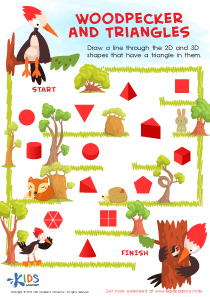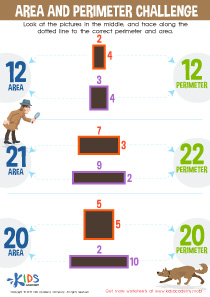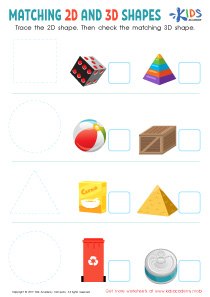Extra Challenge Fractions of Shapes Worksheets for Ages 7-9
10 filtered results
-
From - To
Transform learning with our "Extra Challenge Fractions of Shapes Worksheets" designed for ages 7-9! These engaging worksheets provide students with an exciting way to explore and understand fractions through colorful, interactive shapes. Perfect for young learners, these activities enhance critical thinking and boost confidence in mathematical concepts. From identifying fractions of various shapes to solving fun, challenging problems, these worksheets are tailored to reinforce essential skills. Whether at home or in the classroom, our resources deliver enjoyment and knowledge together. Watch your child excel in math with our thoughtfully created exercises. Get started on the journey of fractional mastery today!
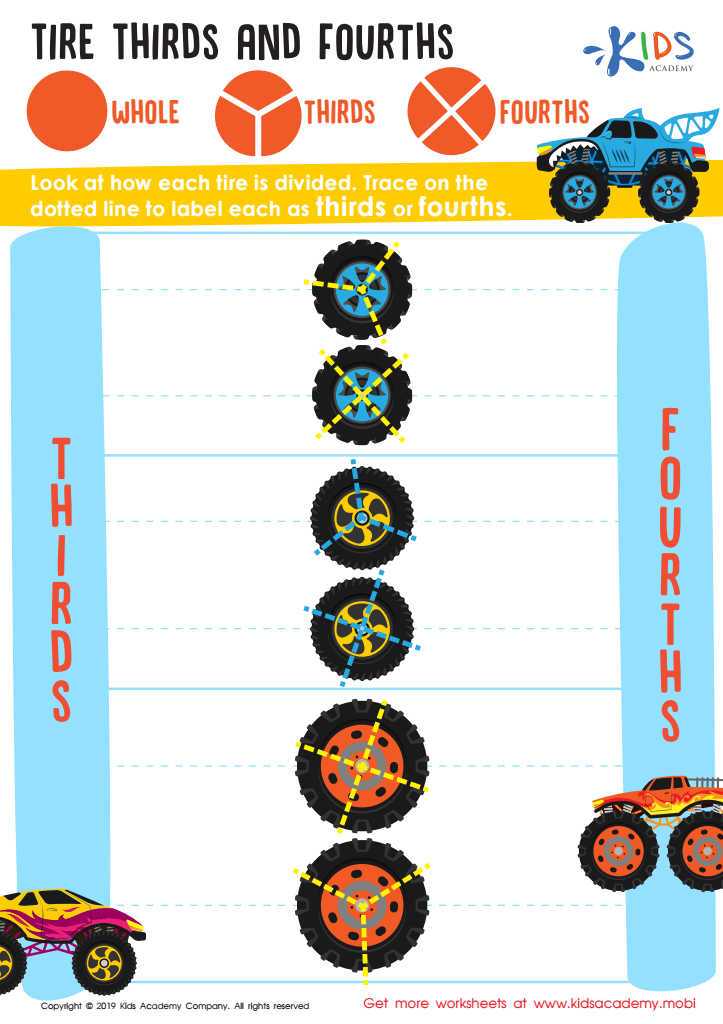

Tire Thirds and Fourths Worksheet
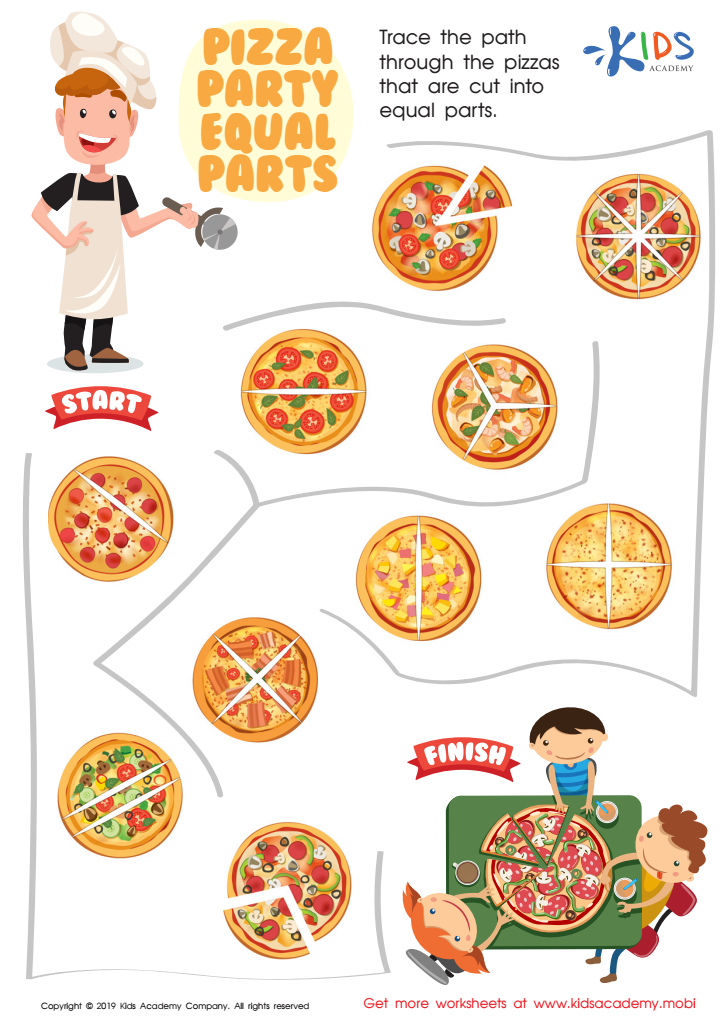

Pizza Party Equal Parts Worksheet
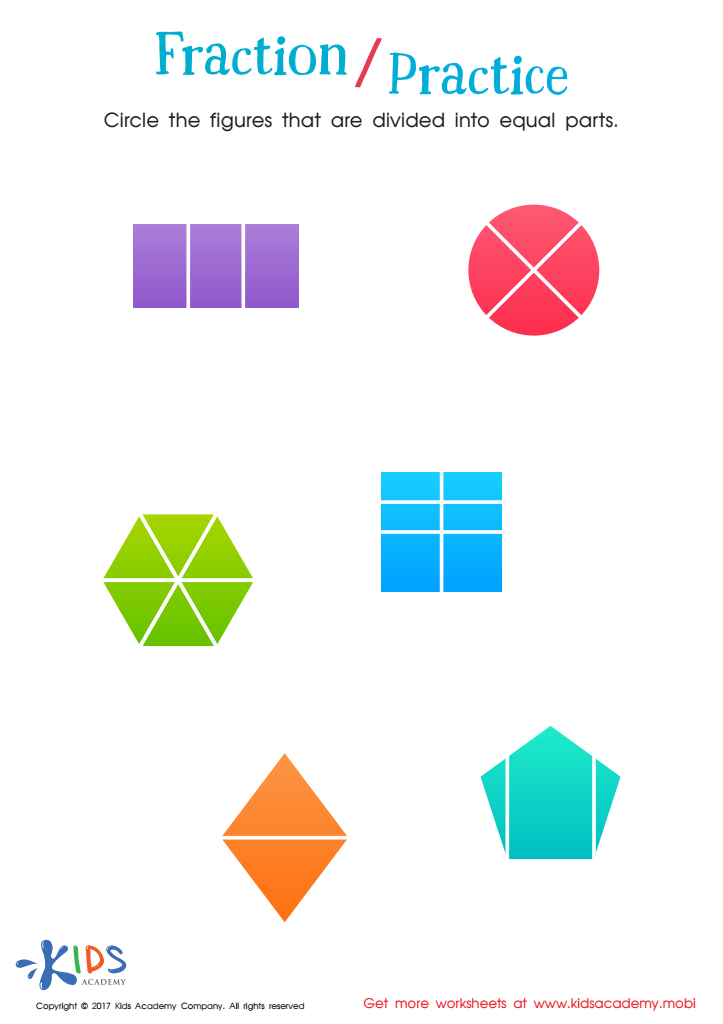

Fractions: Shapes Worksheet
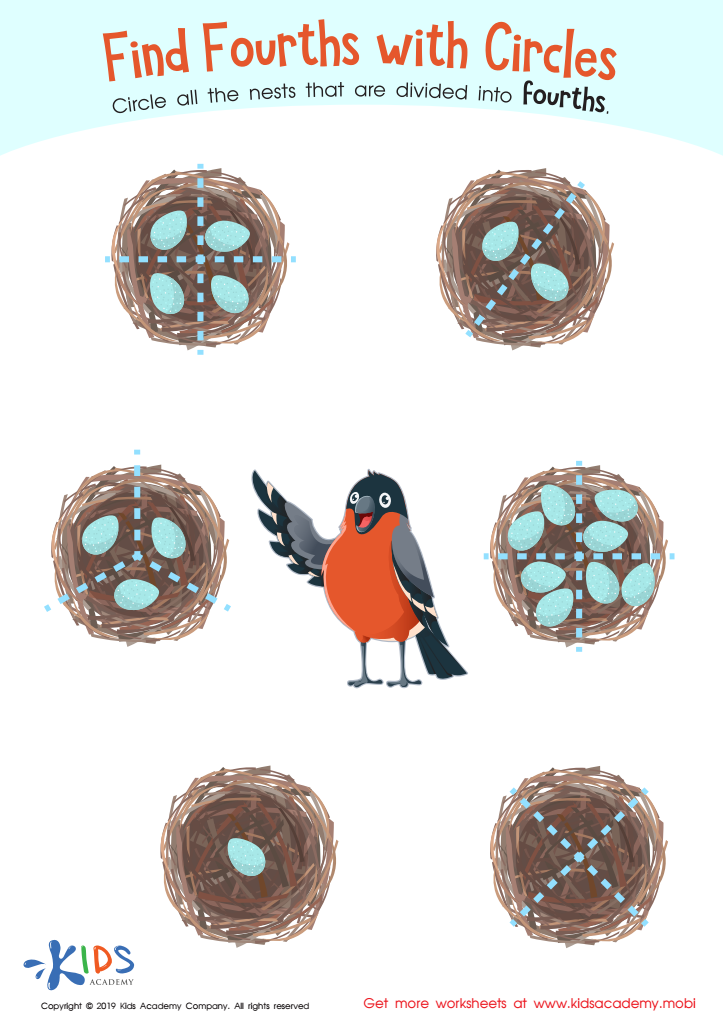

Find Fourths Circles Worksheet
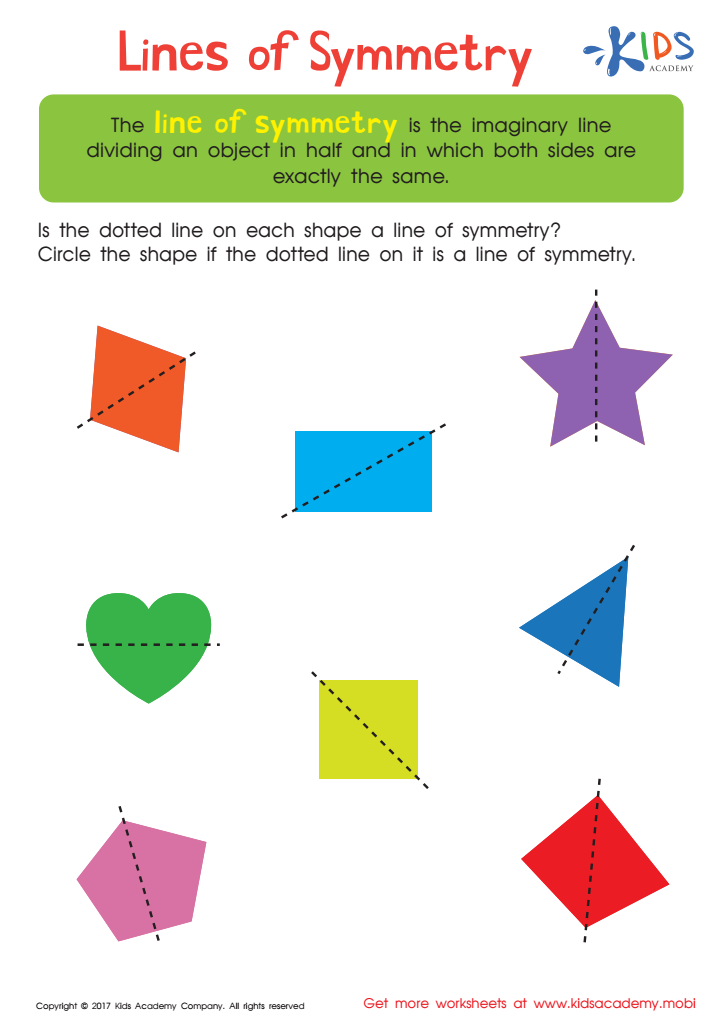

Lines of Symmetry Printable
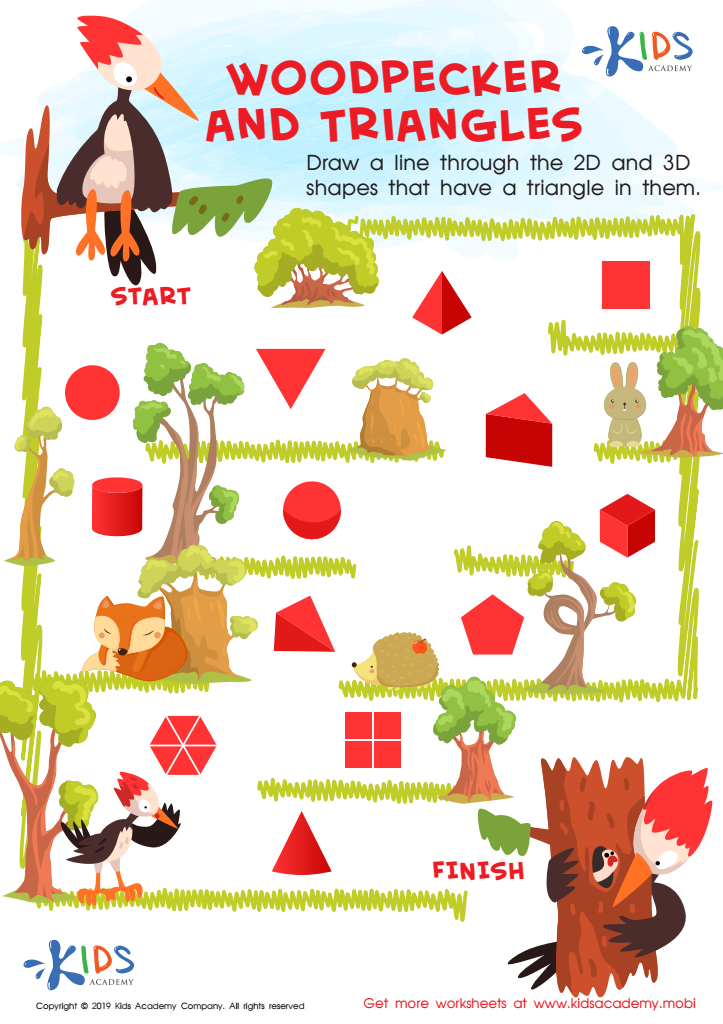

Woodpecker and Triangles Worksheet
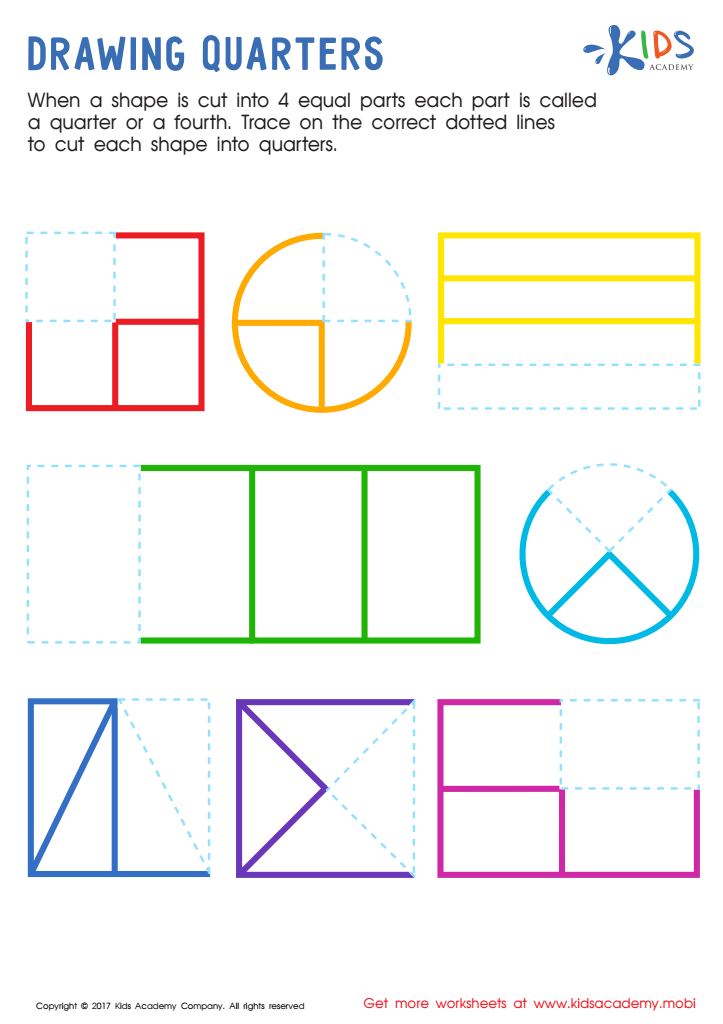

Drawing Quarters Worksheet
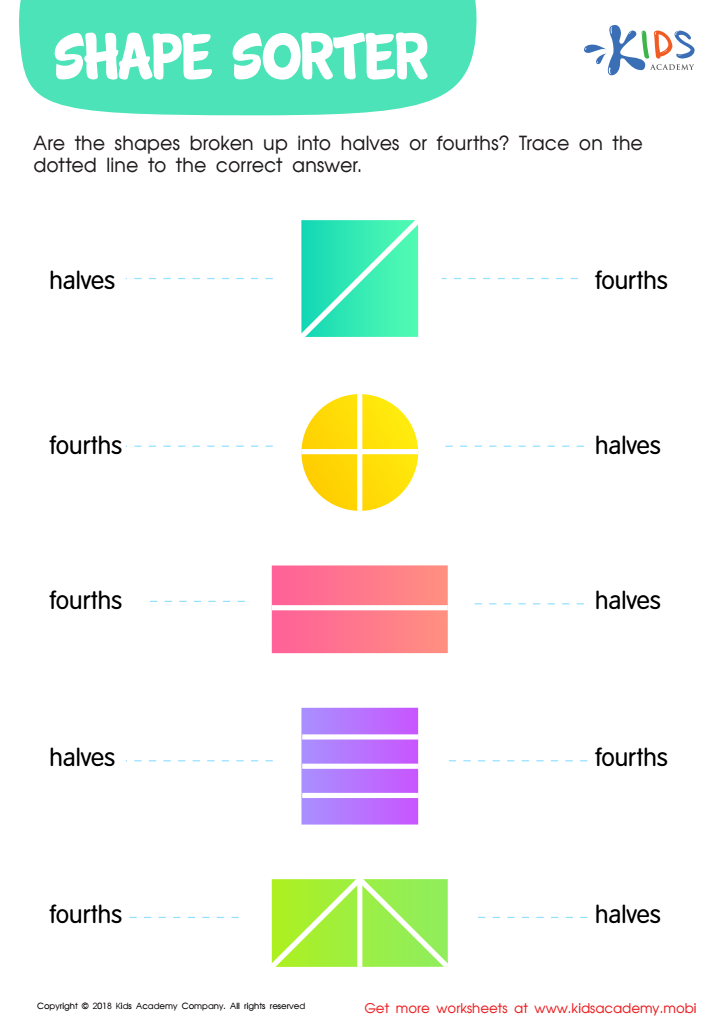

Shape Sorter Worksheet
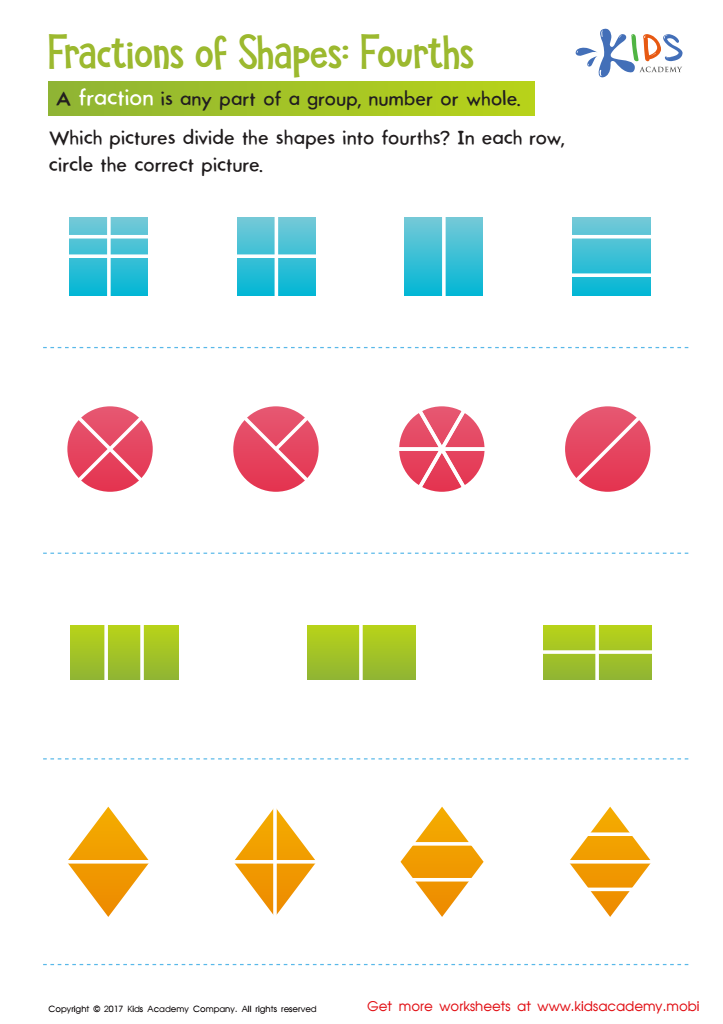

Fractions of Shapes Worksheet
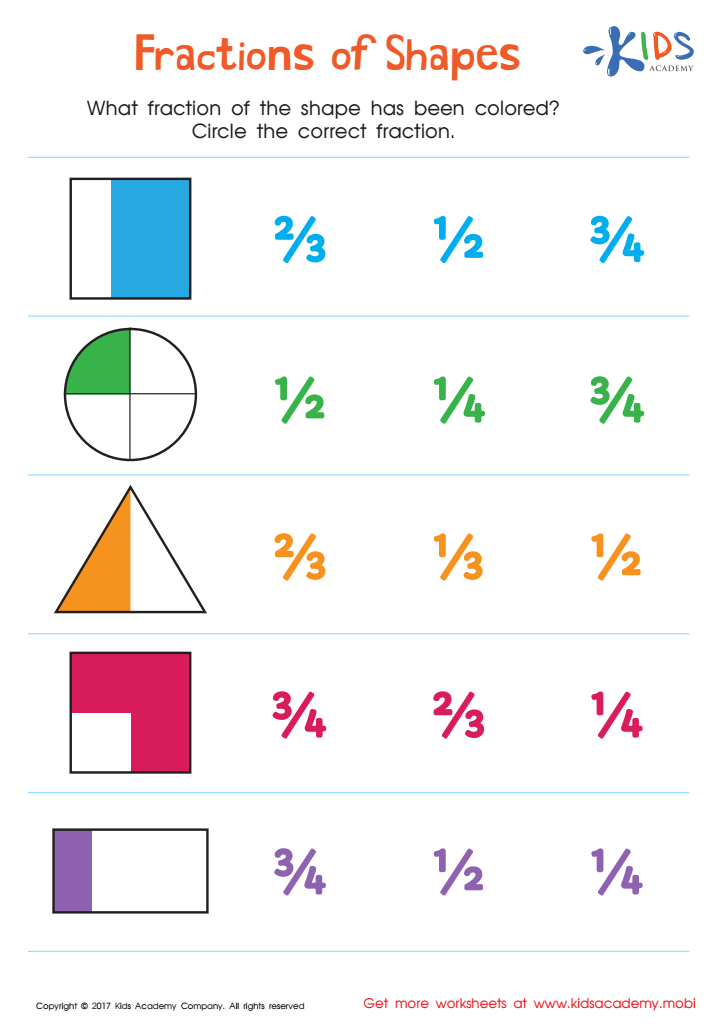

Fractions of Shapes: Math Concept Worksheet
Parents and teachers should care about Extra Challenge Fractions of Shapes for kids ages 7-9 for several reasons. First, this age group is critical for developing mathematical foundations, and introducing challenging concepts like fractions enhances cognitive skills. Learning fractions through visual representations, such as shapes, helps children understand portions and relationships, fostering spatial awareness and critical thinking.
Engaging with extra challenges encourages problem-solving and perseverance. It also stimulates curiosity and enthusiasm for learning. By tackling more complex tasks, students build confidence in their abilities; this sets a positive precedent for future math-related endeavors. Engaging with fractions through diverse shapes invites creativity, making math enjoyable rather than intimidating.
Moreover, fractions are pivotal in everyday life, from dividing pizza slices to measuring ingredients in cooking; understanding these concepts prepares children for real-world applications. By teaching and challenging children with fractions at this formative stage, parents and teachers can instill a solid foundation in mathematics. This builds not just competence, but also a love for learning—a vital component for lifelong educational success. Supporting this understanding will help foster a population that values and approaches mathematics with confidence and readiness for future challenges.
 Assign to My Students
Assign to My Students









